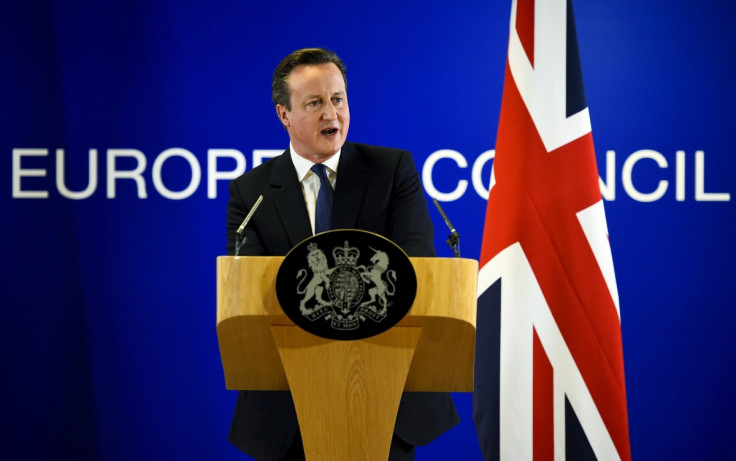David Cameron: Poor and vulnerable of UK would be the victims of a Brexit
The poorest and most vulnerable members of British society would be hit hardest if the UK broke away from the EU, David Cameron has warned. The prime minister also argued that leaving the 28-nation-bloc after the forthcoming referendum would be a "national error".
Cameron made his latest pro-EU plea in a comment piece for the left-wing tabloid newspaper The Daily Mirror, days after Mark Carney warned a Brexit could trigger a "technical recession".
"We're fighting for jobs. Three million people's livelihoods are linked to trade with Europe, countless more indirectly," the prime minister said.
"Indeed, every single job depends on a strong economy, which, in turn, depends on our membership of the EU. Last week the governor of the Bank of England said we may suffer a new recession if we left.
"We know all too well who's hit hardest in a recession - the poorest and most vulnerable. We're fighting for lower prices. It's widely accepted – even by those who want to leave – that leaving would knock our currency."
Cameron's comments coincide with a pro-Brexit letter in The Daily Telegraph, which has been signed by more than 300 business leaders. The signatories, including Superdrug co-founder Peter Goldstein, claimed the UK's competitiveness is being undermined by the EU.
"Year-on-year the EU buys less from Britain because its economies are stagnant and millions of people are unemployed," the letter said.
"It is business – not government – which generates wealth for the Treasury and jobs for our communities. Outside the EU, British business will be free to grow faster, expand into new markets and create more jobs. It's time to vote leave and take back control."
The arguments for 'leave' and 'remain' votes comes as the campaigning ahead of the 23 June vote intensifies, with former Mayor of London Boris Johnson leading the Vote Leave campaign against his Conservative rival Cameron.
The latest online opinion poll from ICM, of more than 2,000 people between 6 and 8 May, put 'leave' two points ahead of 'remain' (46% versus 44%).

© Copyright IBTimes 2025. All rights reserved.






















